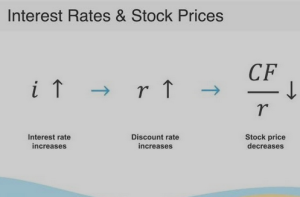The stock market is influenced by a variety of factors, and its fluctuations can be attributed to a combination of economic, political, and market-specific elements. Here are some key factors that can cause changes in the stock market:

Causes of Changes in Stock Market
-
Table of Contents
ToggleEconomic Indicators:
- GDP (Gross Domestic Product): The overall health and growth of the economy can impact stock prices.
- Employment Data: High levels of unemployment can signal economic weakness, affecting investor confidence.
- Inflation Rates: High inflation can erode purchasing power and impact corporate profits.
-
Interest Rates:
- Central banks, such as the Federal Reserve in the United States, set interest rates. Changes in interest rates can affect borrowing costs for businesses and consumer spending, influencing stock prices.
-
Corporate Earnings:
- The financial performance of individual companies directly affects their stock prices. Positive earnings reports often lead to higher stock prices, while poor performance can result in declines.
-
Political and Geopolitical Events:
- Political stability or instability, government policies, and geopolitical events can have a significant impact on investor confidence and market sentiment.
-
Market Sentiment:
- Investor perceptions, emotions, and sentiment can drive buying or selling behavior, leading to market fluctuations.
-
Global Events:
- Events such as natural disasters, global conflicts, or health crises (e.g., pandemics) can create uncertainty and affect markets.
-
Currency Movements:
- Changes in exchange rates can impact multinational companies and their profits, influencing stock prices.
-
Technological Advances:
- Innovations and technological advancements can impact industries and companies, affecting their competitiveness and stock valuations.
-
Regulatory Changes:
- Changes in government regulations or policies can impact industries and companies, influencing investor perceptions and stock prices.
-
Market Speculation:
- Investor speculation and trading activities can lead to short-term price fluctuations that may not necessarily reflect the underlying fundamentals of companies.
-
Market Liquidity:
- The ease with which assets can be bought or sold can influence market stability. Illiquidity can result in more significant price swings.
It’s important to note that these factors often interact and influence each other, contributing to the dynamic nature of the stock market. Additionally, the market is inherently unpredictable, and various unexpected events can further contribute to fluctuations. Investors use a combination of fundamental analysis and technical analysis to assess these factors and make informed decisions.
